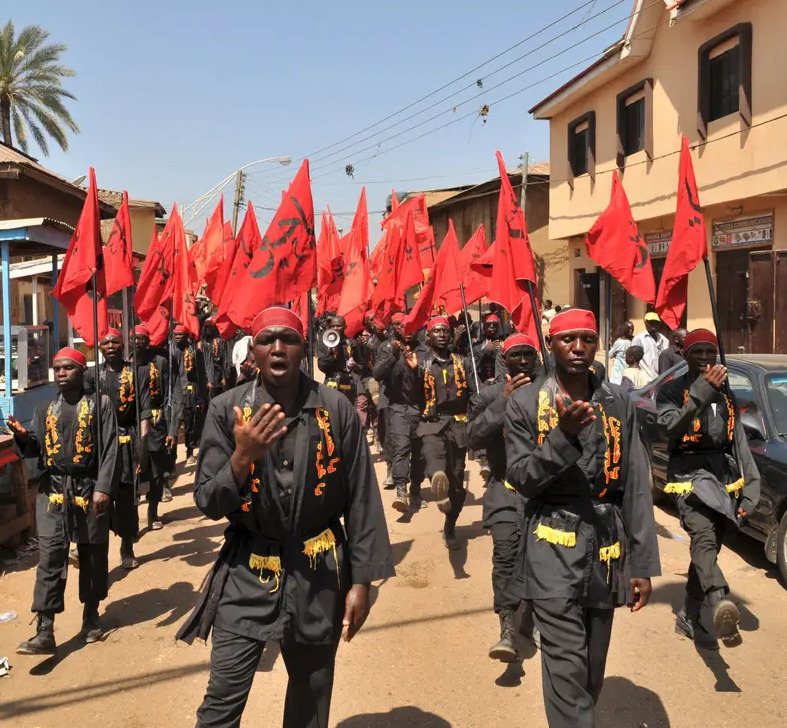“O, God! Make his face illuminated and resurrect him with the pious and establish familiarity between him and Muhammad (peace be on him and his household) and his household.”
These are the last words that John heard. John b. Huwai was a black companion of Imam Husain (peace be on him) who was from Nubia (a region in Africa) and came to Karbala along with the caravan of the Imam. He was an expert in repairing and making weapons and it was for this reason that on the night before his martyrdom on Ashura, he was preparing his Imam’s weapon.
On the Day of Ashura, the 10th of Muharram, 680 CE, the Imam, along with his 72 companions who had accompanied him, some of whom were with their families, fought their enemies in Karbala. The companions took permission from the Imam one after the other to go into the battlefield. John also wanted to go fight and, therefore, came to the Imam to seek permission. The Imam said to him: you are not compelled to go fight; you came with us for comfort, do not trouble yourself. John’s sole desire, despite knowing the Imam was stopping him from going into the battlefield to protect his life, was to go fight and protect the Imam and when he heard the Imam’s objection, he couldn’t bear it. His knees gave out and he fell to the Imam’s feet, crying and said to him: how is it possible that I accompany you in comfort but abandon you in times of distress? Even though I know that I smell and my skin is dark and I know that my ethnicity and race do not hold a high position; however, allow me to go to the battlefield. All this while he was crying profusely and speaking through his tears.
His words brought tears to the Imam’s eyes. Imam Husain, who was the manifestation of religion and God and in God’s eyes black and white makes no difference, gave him permission to go fight. John, having achieved his desire, separated from the Imam and sought to seek forgiveness for any wrongdoing from the family of the Imam; he, therefore, went to their tents. The children surrounded him and started crying, asking him not to leave them as they all knew that fighting against an army of 30 thousand people meant martyrdom. However, John calmed each of them with his words and returned them to their tents. He was ready to give his life out of his intense love for the Imam and went into the battlefield, but thirst had weakened him as it had been three days since water had been blocked from the tents of the Imam by the enemies.
Despite this, the 65-year-old John was able to kill 25 people in defending his Imam and his family until he fell to the ground from his wounds and was on his last breaths. Even though he eagerly and from the bottom of his heart wanted to call out for his Imam so that he would come to his side in his last moments, he was embarrassed to call out to do so and it was with a heavy heart that his last moments were passing when suddenly he felt a shade over his head. He opened his eyes and couldn’t believe what he saw. Yes, Husain b. Ali (peace be on him) was beside his nearly lifeless body when he had come beside only a few of his companions at their time of martyrdom. The Imam hugged his head to himself, crying and prayed for him: O God! Make his face illuminated and resurrect him with the pious and establish between him and Muhammad (peace be on him and his household) a familiarity.
But this was not the end of the story. After the event of Karbala, the different tribes came and found the bodies of their tribesmen and separated them from the bodies of the enemies and buried them. But John had no one and his body was left on the ground, unburied, until 10 days later when some people found an illuminated corpse on the ground which was giving out a scent of perfume and musk. When they reached him, they recognized him as the Imam’s black companion for whom the Imam had prayed and his prayer had been answered. They, therefore, buried John along with the other martyrs who were buried at the feet of Imam Husain (peace be on him).
Aʿyān al-Shiʿa, vol. 1
Al-Irshād, vol. 2
Manāqib, vol. 4
Biḥār al-Anwār, vol. 45
Al-Umam wa al-Mulūk, vol. 5
Author: Mo. Bagher
Translator: Rashed


